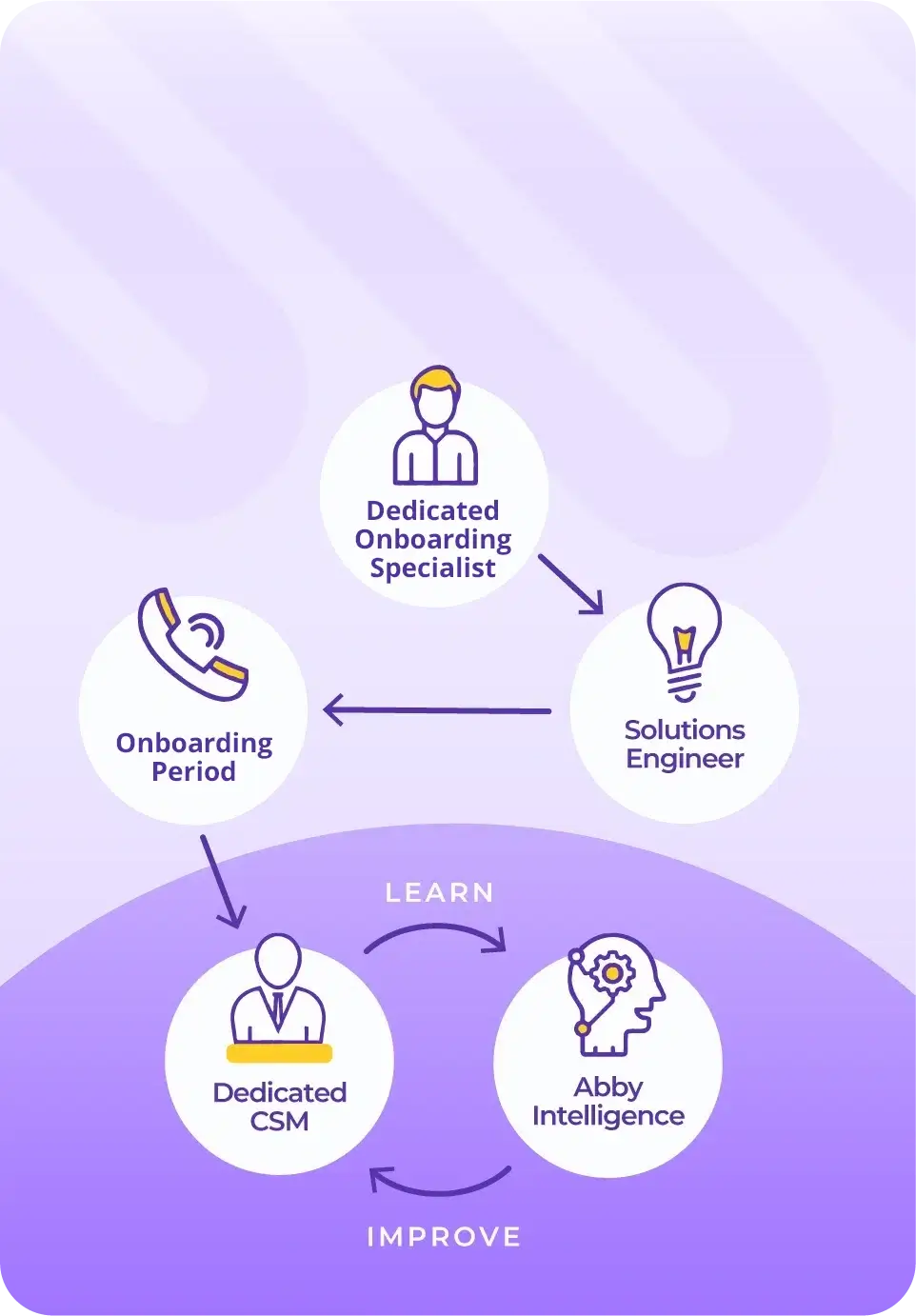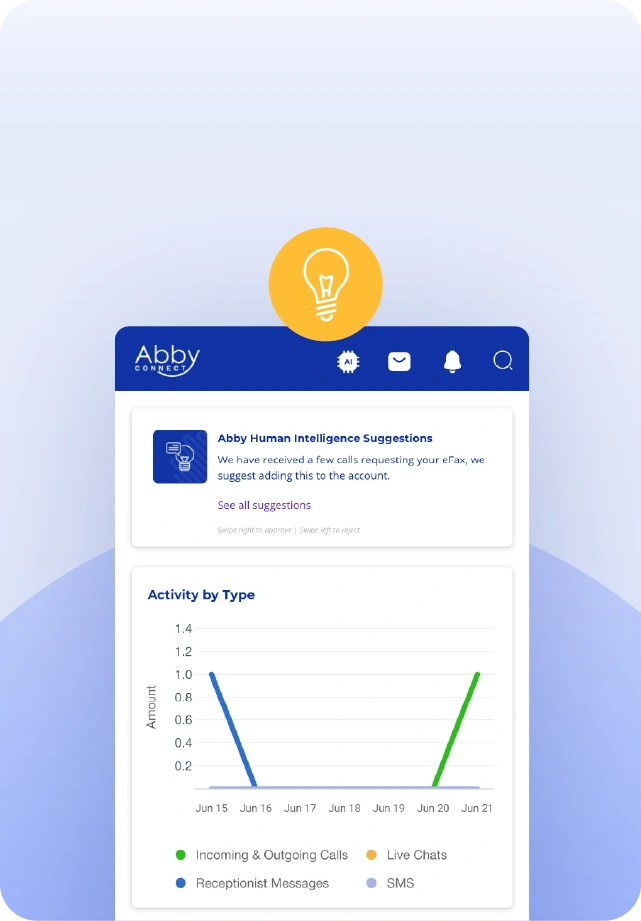
Personalized Attention
With Abby, a team of 5–10 experts that know your business inside out—just like an in-house receptionist, but at a fraction of the cost.
Convert callers into loyal customers, save time, and elevate your business with 24/7 human receptionists for calls and live chat. Seamlessly blending professionalism with AI-powered efficiency.

With Abby, a team of 5–10 experts that know your business inside out—just like an in-house receptionist, but at a fraction of the cost.

Dedicated support, and tailored call handling. We calibrate, learn, and improve to deliver exceptional results.

Proactively optimize your call handling with actionable insights, ensuring every interaction improves over time.
Their customer service is fantastic. I haven’t worked with another company that’s as responsive as them.
They don’t sound like the typical reception service that I’ve used in the past. Abby is super cost-effective and I’ve recommended them highly.
They’re very accommodating and easy to work with. Abby makes it easy for customers to reach us and it presents a good face for our company when people call.
Having them helped me greatly with being able to provide a higher level of customer service and everybody at Abby Connect has been wonderful.
Abby Connect is something that distinguishes me from my competitors.
Prioritizing customer experience is proven to increase retention, satisfaction, and revenue.
Focus on what you do best and let us handle the busy work.
Impress callers and website visitors on their first interaction. Don’t let your clients hang up and call your competitors.
Grow your business with your own professional, reliable, and personable receptionist team.
